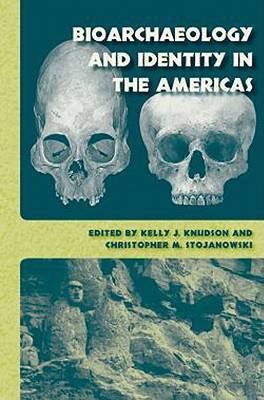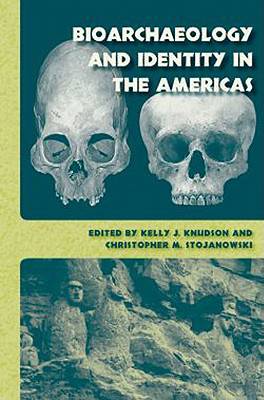
En raison d'une grêve chez bpost, votre commande pourrait être retardée. Vous avez besoin d’un livre rapidement ? Nos magasins vous accueillent à bras ouverts !
- Retrait gratuit dans votre magasin Club
- 7.000.000 titres dans notre catalogue
- Payer en toute sécurité
- Toujours un magasin près de chez vous
En raison de la grêve chez bpost, votre commande pourrait être retardée. Vous avez besoin d’un livre rapidement ? Nos magasins vous accueillent à bras ouverts !
- Retrait gratuit dans votre magasin Club
- 7.000.0000 titres dans notre catalogue
- Payer en toute sécurité
- Toujours un magasin près de chez vous
Bioarchaeology and Identity in the Americas
53,45 €
+ 106 points
Description
"Extends discussions of identity beyond the social meaning of age, sex, and social role to larger issues of group identity and ethnogenesis. The integration of biological and mortuary data results in new approaches to the construction of social identity."--Dale L. Hutchinson, University of North Carolina Bioarchaeology and Identity in the Americas represents an important shift in the interpretation of skeletal remains in the Americas. Until recently, bioarchaeology has focused on interpreting and analyzing populations. The contributors here look to examine how individuals fit into those larger populations. The overall aim is to demonstrate how bioarchaeologists can uniquely contribute to our understanding of the formation, representation, and repercussions of identity. The contributors combine historical and archaeological data with population genetic analyses, biogeochemical analyses of human tooth enamel and bones, mortuary patterns, and body modifications. With case studies drawn from North, Central, and South American mortuary remains from AD 500 to the Colonial period, they examine a wide range of factors that make up identity, including ethnicity, age, gender, and social, political, and religious constructions. By adding a valuable biological element to the study of culture--a topic traditionally associated with social theorists, ethnographers, and historical archaeologies--this volume highlights the importance of skeletal evidence in helping us better understand our past. Kelly J. Knudson is assistant professor and founding member of the Center for Bioarchaeological Research at Arizona State University. Christopher M. Stojanowski is assistant professor and founding member of the Center for Bioarchaeological Research at Arizona State University.
Spécifications
Parties prenantes
- Editeur:
Contenu
- Nombre de pages :
- 272
- Langue:
- Anglais
- Collection :
Caractéristiques
- EAN:
- 9780813036786
- Date de parution :
- 29-11-10
- Format:
- Livre broché
- Format numérique:
- Trade paperback (VS)
- Dimensions :
- 152 mm x 229 mm
- Poids :
- 390 g

Les avis
Nous publions uniquement les avis qui respectent les conditions requises. Consultez nos conditions pour les avis.





